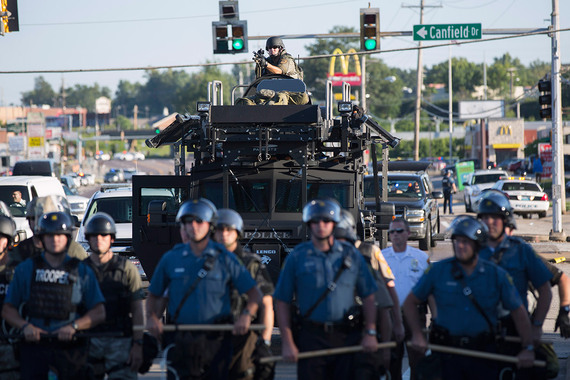My mother brought me up not to see the difference in people, but on many levels the sameness. One of her most enlightening lines was, "Imagine if that were you, how would you feel?" When I was 6-years-old, while walking up my elementary school steps with my then very young mother, I asked her what the "N" word meant. She turned on her heels so fast it startled me and asked if I knew what a Dirty Jew was? I said yes putting together the word dirty and Jew made me feel sick and frightened. She turned back around very quickly and I continued to waddle obediently like any little duckling behind its mother up the stairs. It made a very lasting impression on me. There was never a time in my life when I did not have friends of diverse colors and nationalities in my life. I am grateful for inheriting that legacy, which never blocked all the possibilities to be enlightened and to love and be loved by the whole spectrum of human beings.
My mother and I wrote this blog together:
Tonight I walked through what seemed like one massive crush of humanity in Times Square. It was so dense at one point I could only get down the street stepping by inches; had I fainted for lack of air, the tightly packed crowd would have held me upright.
Feeling uncomfortably trapped, I thought Ferguson had become a tipping point. Political polarization has divided the country, a stressed and economically challenged population is agitated, the average person is usually working for two people, if they are working, while corporate heads are making salaries 10 times higher (if not more) than they ever have.
But the call to pay close attention to race at this moment is a hot button issue with long simmering resentments now bubbling up to the surface and at a boil. The new awareness that sometime, while we were sleeping, police departments suited up like a military force, has awakened people to a perception of threat, with the motto "protect and serve" rapidly receding into the distance, leaving an us-against-them mentality moving to the fore. We are surrounded by mistrust in our institutions, perhaps even the world, as the daily news broadcasts war everywhere. We are in a time of extreme turbulence and distress.
How can we change the dynamics we can control? It seems we are currently dependent on two critical groups to mediate the circumstances in Ferguson. In the near term, grassroots groups and local officials who work with communities can be both the listeners and the actors who can begin to make a desperately needed difference. The other group will be the Justice Department, both local and national, and how they handle things in both the near and long term. We are a country based on law and inspired by high ideals. But the law has been poorly applied if we look at the disparities in the prison population and the "Stop and Frisk" profiling that has been the bane of young black men's existence, to name just two conditions that smack of blatant unfairness. When people believe that fairness will prevail, their sense of trust increases. That one condition goes far to mitigate many areas of stress in their lives. Longer term, all groups, along with Congress, will need to take a new look at laws that are patently unfair and work out a better balance, including the distribution of armaments meant for war to police departments. These will be helpful steps in the right direction.
That's what government can do. But let us not forget the continuing pressure of lack of opportunity that can be pervasive in low income communities of color, and its effect on the lives of citizens in shaping feelings of resentment that trigger violence when one incident "too far" occurs. Ultimately there is no status quo when some people have little or no chance to achieve. Fairness has always been an important part of American culture. Fairness for everyone will go far to creating peace and healthier dynamics in our society.
--
Joyce Freeling is the founder of http://www.trendsettersnetwork.org/about-us
Please send your thoughts and comments to ifhpblog@gmail.com.
I invite you to participate and keep the dialogue going about what we can all do to change the tide of these problems.

